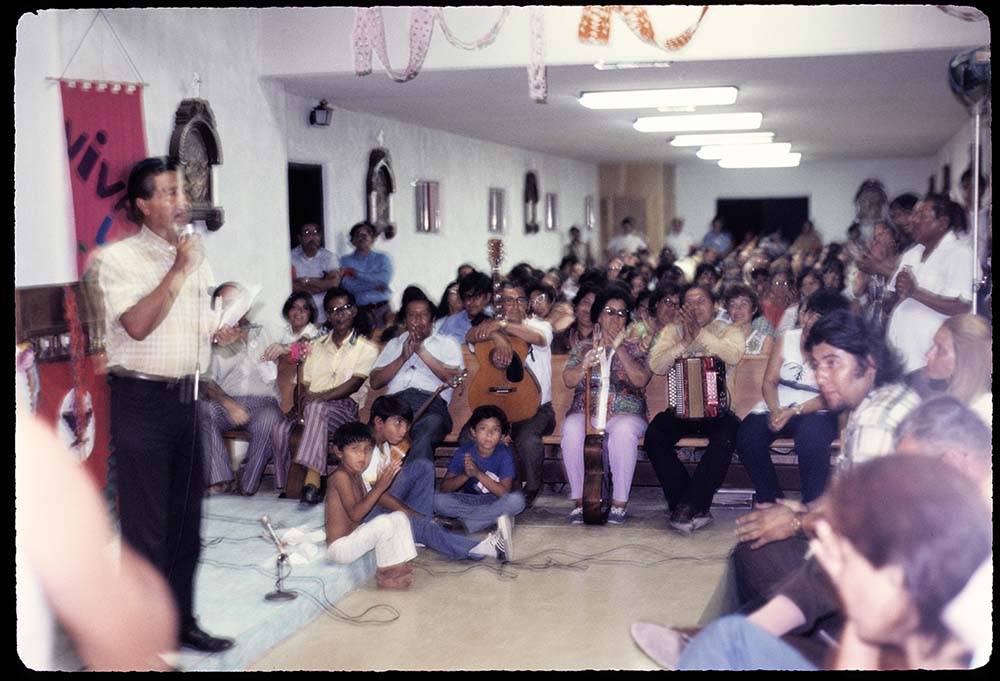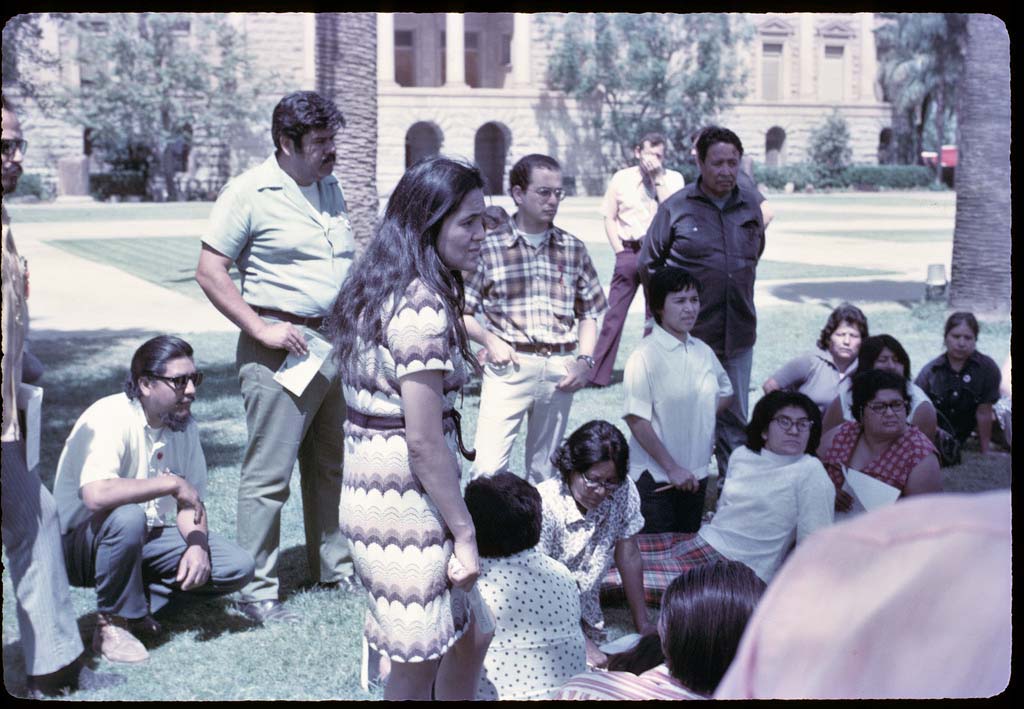

CPLC began with a group of student and community activists who pushed back against racial discrimination.
50 years later, we are celebrating our legacy by returning to our roots.
In the words of historian Dr. Pete Dimas, “The founding of Chicanos Por La Causa in 1969 appeared to be a radical political act. However, this moment was actually a natural result of the long evolution of the Chicano community.”
While the popular narrative of Arizona's history often leaves out the significance of Mexican Americans, or Chicanos, the state would not exist as it does today without their presence.
Despite their significant contributions, however, minorities make up less than 2% of all historical record in Arizona. This lack of historical documentation is significant. Knowledge of one’s history creates cultural confidence and a sense of belonging, which directly impacts school performance for students and strengthens the community as a whole.

Cesar Chavez speaking at CPLC headquarters, 1972
The famous rallying cry:
(“Yes, we can!”)
Was coined at CPLC's headquarters by
Dolores Huerta during Cesar Chavez's 1972 fast.

Dolores Huerta and CPLC Co-Founder Gustavo Gutierrez Protesting at AZ State Capitol, 1972
CPLC has taken on the mantle of preserving and disseminating this history as part of our 50th Anniversary. We brought on Dr. Dimas as well as historians from UCLA and UC Davis to develop a traveling exhibit and accompanying book documenting the history of Chicanos in Arizona.
The exhibit has appeared at multiple events in Phoenix and Tucson, with more showings scheduled throughout the year. The full book is available below:
To order your own Hardcover copy of the book, click on the button below:
Place OrderAdditionally, CPLC partnered with Arizona PBS to create a documentary about our journey over the past 50 years from community activists fighting discrimination in the 1960s to a multi-state nonprofit garnering visits from several sitting presidents including President Obama in 2015. The documentary aired in 2019 and will be available in PBS's education video library.
View the full documentary below: